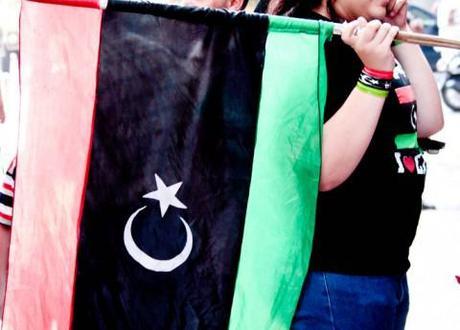 The Libyan flag. Photo credit: Maggie Osama
The Libyan flag. Photo credit: Maggie Osama
The background
The White House has for the first time called the attack on the US consulate in Benghazi on September 11th 2012, which killed four Americans, including the US ambassador, Chris Stevens, a “terrorist attack” which might have Al-Qaeda links, reported Al-arabiya News. Previously the official line had linked it to the dissemination of an anti-Islamic video, The Innocence of Muslims, which has caused widespread outrage in the Muslim world; officials said the attack on the compound was spontaneous. However, Jay Carney, a White House spokesman, said this week that “it is self-evident that what happened in Benghazi was a terrorist attack.”
It’s a major problem, leading to rows about security at the mission, and wider implications about Libya and the US. Secretary of State Hillary Clinton has announced an official review into it, reported The News Tribe. The Telegraph added that US intelligence believes the atttack was co-ordinated by Ben Qumu of Ansar al-Sharia, a group linked to Al-Qaeda. This is all very worrying, both for the White House, which won’t look good if it was a terrorist attack; and for Libya, which is struggling to contain jihadist militias.
Libya’s fragile democracy
It’s a “shaky start” for Libya’s government, said The Economist, with the “acting interior minister” being “at embarrassing odds” with the current government over “who precisely was responsible for the attack,” and, more importantly, who should be “arrested.” Everyone’s “passing the buck,” leaving “an edgy stand-off betewen assorted security forces … and the jihadists.” The army chief of staff and the speaker of the new parliament are both “robust” in their views, sayign they’re “ready to fight any militia.” How they tackle the “jihadists will be crucial,” and if “the jihadists are not faced down, Libya’s fragile democracy … could fail.”
Dry tinder in the Muslim world
The attack “may be following the playbook of al-Qaeda leader Ayman al-Zawahiri,” said David Ignatius in The Washington Post, who advocates intifada; when he became leader, US analysts thought it was better, since his attacks were “less threatening” than bin Laden’s – so something like “Benghazi” is “tragic and deplorable”, but with a lower cost “than al-Qaeda operations targeted at the US homeland.” A strategy like this will “mean continuing attacks across the Arab world.” There is “a dry tinder across the Muslim world, in which al-Qaeda is eager to toss a match.”
We need to look at the White House with more scepticism
It’s just like the attack on Osama bin Laden’s compound, said Glenn Greenwald on The Guardian – we were fed a diet of lies about that, and now the lies told to us about the attack on the consulate are being exposed. The claim that the attack happened because some Muslims were angry about The Innocence of Muslims is “almost certainly false.” The White House obviously has an interest in keeping up the lie: if it’s only about the video, then the government is absolved of responsibility for “provoking the anti-American rage.” It’s more fun to “scoff” at the “primitive religious violence” of Islamists than to admit faults in one’s own government. Obama doesn’t need, before an election, to look like someone who can’t protect his own diplomats from terrorists that he’d apparently “heroically vanquished.” We should look at everything they say with “intense skepticism”, and “demand evidence before believing.”

